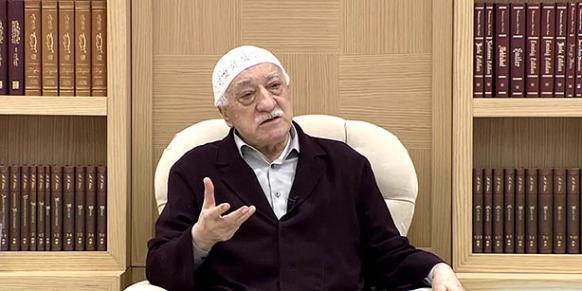Editor’s note: This newspaper has been seized by the Turkish government.
Turkey sees end of single party gov’t as AK Party vote drops significantly

Prime Minister Ahmet Davutoğlu (3rd R) waves to supporters from the balcony of the AK Party headquarters in Ankara on June 7. (Photo: DHA)
After 13 years of domination as a single-party government, the Justice and Development Party (AK Party), which has been receiving growing criticism for pursuing highly divisive, authoritarian and repressive policies, saw a significant erosion of support in Sunday’s election and it failed to secure the 276 seats in the Parliament necessary to continue its single-party rule for another term.
The pro-Kurdish Peoples’ Democratic Party’s (HDP), which opted to run as a party in this election for the first time, rather than fielding independent candidates to circumvent the country’s 10 percent election threshold, managed to pass the barrier, which reduced the number of seats in Parliament that would have otherwise gone to the AK Party. Hence, the establishment of a coalition government is back on Turkey’s agenda after more than a decade.
This result has also likely thwarted the plans of the AK Party government and President Recep Tayyip Erdoğan to change the country’s Constitution and transform Turkey’s parliamentary system into a presidential system, which many analysts said would enable Erdoğan to continue accumulating power and give rise to a system without the necessary checks and balances.
The unofficial results of the election, which many said was more like a referendum in that would determine the fate and political future of the country – becoming either more authoritarian or denying President Erdoğan the changes he aspires to and curbing his power – indicated that the AK Party received 40.6 percent, the main opposition Republican People’s Party (CHP) received 25.3 percent, the Nationalist Movement Party (MHP) received 16 percent while the HDP, which widened its appeal beyond its core Kurdish vote to center-left and secularist segments disillusioned with Erdoğan, received 12.7 percent of the nationwide vote. These percentages translate into 257 seats for the AK Party, 131 for the CHP, 83 for the MHP and 79 for the HDP.
Sunday’s vote was held amid concerns of vote rigging, prompting more than 50,000 people to sign up to serve as election monitors. The fears were not without reason, as last year’s local elections, held on March 30, were overshadowed by allegations of election fraud due to the discrepancies between the numbers recorded at polling stations and those actually entered into the country’s election authority, the Higher Election Board (YSK), in addition to suspicious power outages taking place across 22 provinces during the vote count.
On Sunday, the mood was tense at some polling stations, particularly in the country’s predominantly Kurdish Southeast, after a bombing on Friday killed two people and wounded at least 200 at an election rally for the HDP, which has been a frequent target of violence in the run-up to the polls.
Turkish court issues arrest warrant for Gülen

Turkish Islamic scholar Fethullah Gülen, who resides in the United States, delivers a speech.(Photo: Cihan)
An İstanbul court has accepted a request by the İstanbul Chief Public Prosecutor’s Office to issue an arrest warrant for Turkish Islamic scholar Fethullah Gülen, who resides in the United States.
The 1st İstanbul Penal Court of Peace decided there was “sufficient tangible evidence” against Gülen and agreed to issue the warrant. The move would be a prelude to a formal request for Gülen’s extradition from the United States, where he is living in self-imposed exile in Pennsylvania.
İstanbul Public Prosecutor Hasan Yılmaz, who is supervising an investigation that put Zaman daily Editor-in-Chief Ekrem Dumanlı and dozens of others into jail, issued an arrest warrant for Gülen as part of the operation that started on Sunday targeting journalists, scriptwriters, producers and police officials.
In his request for a warrant, the prosecutor accused Gülen of heading a criminal gang. The charges include operating an armed terror group, which carries a penalty of up to 15 years in prison.
“Anyone critical of this government risks facing the same fate,” said Abdulhamit Bilici, a columnist for Zaman, a newspaper close to Gülen’s movement. “These days it is very easy to be called a traitor.”
The government of President Recep Tayyip Erdoğan has accused Gülen’s movement of orchestrating a plot to try to bring it down. It says Gülen’s followers within the police and judiciary were behind corruption allegations that forced four ministers to resign and targeted members of Erdoğan’s family. Gülen denied all the charges.
The US and Turkey do have an extradition treaty and Erdoğan has said previously that he wants Gülen extradited.
Alp Aslandoğan, a New York-based Turkish academic and close associate of Gülen, described the accusations against him as ludicrous.
“It’s not a surprise except in the sense of how low the Erdogan regime will go for the sake of absolute power and intimidation,” Aslandoğan, who leads Alliance of Shared Values, said.
Leave a comment